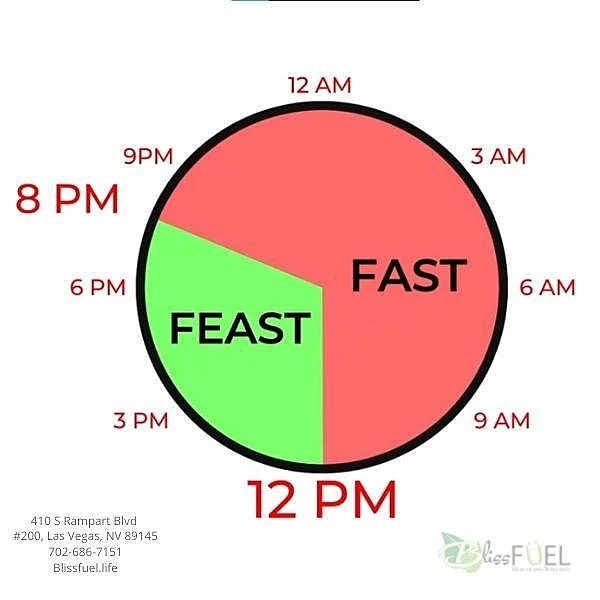Intermittent fasting has been growing in popularity for years now. The basic premise is to have intermittent periods of eating and not eating, which can help you lose weight and improve your health. But what about BCAAs supplements? Can these be taken during a fast? This article will explore the effects of BCAA supplementation on intermittent fasting.
The Truth About BCAA and Intermittent Fasting: Does Drinking BCAAs During Your Fast Interfere With Results?
Intermittent fasting is a weight loss technique that’s been getting a lot of attention lately especially in women to lose weight. This article will explore how it can be used to help you lose unwanted pounds, and the truth about BCAA and intermittent fasting.
Intermittent fasting has been linked to many different health benefits, from improved insulin sensitivity to increased longevity. It’s also been shown to support weight loss and improve muscle growth. Some people combine intermittent fasting with whey protein supplementation or consuming energy drinks in order to reap the most benefits from both techniques. But does drinking BCAAs supplements during your fasted training with those results? Read on to find out!
BCAAs do interfere with Intermittent fasting during fasting. Branched-chain amino acids (BCAA) are the newest fitness craze. These are supplements meant to feed your body with vital amino acids that it cannot produce on its own. BCAAs are a kind of amino acid meant to aid in your fitness attempts by maintaining muscle mass.
BCAAs are amino acids; amino acids are macronutrients since they are the building blocks of protein. Thus, if you take BCAA supplements in tablet or powder form, you are legally “eating.” By taking a BCAA (branched-chain amino acids) supplement, you consume “food,” but just a trace quantity. Bear in mind that BCAAs include calories.
The Truth About BCAA and Intermittent Fasting
BCAA (Branched Chain Amino Acid) is a type of amino acid that can help increase muscle mass, strength, avoid muscle soreness and decrease the breakdown of injured skeletal muscle. It’s often taken during exercise or periods of high physical stress to maintain muscular function.
Intermittent fasting can also be used for weight loss. At the same time, research indicates that intermittent fasting might help you burn body fat while developing lean muscle, and it does not affect muscle protein synthesis. This diet requires you to go without food for a certain period each day.
There are numerous versions of intermittent fasting, but most require you to do it once per week. There is no evidence that fasting results in more muscle loss than calorie restriction does. Indeed, research indicates that intermittent fasting during a fasted workout may aid in the maintenance of muscle mass while concurrently consuming BCAAs.
As BCAA (Branch Chain Amino Acids) are the building blocks for proteins, they play an essential role in muscle development and growth hormone. BCAA comprises three amino acids, leucine, isoleucine, and valine; all BCAA are particularly rich in branched-chain amino acids.
The BCAA mimics the effect of insulin levels to boost muscle synthesis by increasing blood flow into muscles without any side effects like fat gain or decrease in performance.
Taking BCAA Supplement may also help optimize your fasted workout to deliver more results with less pain. Although, not much study has been concluded on BCAA supplementation during fasted cardio training because it would likely be reserved for those seeking extreme improvements. BCAAs supplements show good results when taken before and after a workout or race, recommended for optimal effect.
The key difference between BCAA supplementation and intermittent fasting is spent in a fasted state. With intermittent fasting, the goal is to spend more time in a fasted workout than consuming food or drinks with calories. As long as the time spent in this stage doesn’t exceed 24 hours, then no foods or drinks are consumed, including BCAAs, protein shakes, and diet soda.
Some people who practice intermittent fasting have reported feeling hungry when supplementing with BCAAs while they are fasting: This is because the BCAAs will provide an energy spike when consumed after being fasted for so long.
Intermittent Fasting Benefit
Intermittent fasting and supplementation with branched-chain amino acids (BCAAs) have improved body composition.
Intermittent fasting is a unique eating strategy in that it is determined by when you eat, not what you consume. That is, this is not a diet. While there are various other fasting strategies, the most popular is the 16/8 approach. In essence, this implies that a person fasts for 16 hours and eats for 8 hours each day.
The most alluring advantage of intermittent fasting for bodybuilding is that it may aid in fat loss while maintaining muscle mass. Fasting essentially pushes your body to deplete its glycogen reserves. Then it switches to fat for energy. Additionally, this procedure may benefit inflammation, intestinal health, insulin resistance, and blood sugar management.
What Is Intermittent Fasting?
Intermittent fasting is a pattern of eating that cycles between periods of fasting and feeding. This pattern goes against the Westernized “three square meals a day” or “every time you eat something, eat as much as you can” mentality that we’ve been taught. Intermittent fasting may assist your body in achieving ketosis more rapidly than keto diet alone.
Intermittent fasting has many benefits, from improved insulin response to increased longevity. But what is intermittent fasting actually doing? And how does it work with BCAA supplementation?
Different Types Of Intermittent Fasting
If you believed that fasting was just for religious motives, you are mistaken. Intermittent fasting, a relatively recent phenomenon in weight management, is gaining popularity as a health and fitness fad.
Intermittent fasting is a procedure in which you alternate between periods of eating and fasting. This kind of eating is often referred to as fasting “patterns” or “cycles.” There are various viable ways to IF, but ultimately it is a matter of personal taste. If you want to attempt IF, you’ll first need to plan out how you’re going to accommodate it into your life, particularly in terms of social activities and physical activity.
The following are some of the most prevalent ways of Intermittent Fasting I’ve been compiled.
1.The Twice-Weekly Schedule – 5:2
This method of intermittent fasting focuses on limiting calories to 500 for two days a week. You keep a healthy and typical diet the other five days of the week: This technique often comprises a 200-calorie meal and a 300-calorie dinner on fasting days. It’s critical to concentrate on high-fiber, high-protein meals to help you feel full, but also to keep your calorie intake low when fasting.
You may pick any two fasting days (Tuesdays or Thursdays) as long as they are separated by a non-fasting day. Ensure that you consume the same quantity of the food as you would on non-fasting days.
2.Fasting Overnight
Fasting overnight is the easiest method and entails fasting for 12 hours each day. For instance: Choose to abstain from eating after supper until 7 p.m. and start eating at 7 a.m. the following morning with breakfast. At the 12-hour point, autophagy continues to occur, albeit the cellular advantages are milder.
A benefit of this strategy is its simplicity of implementation. Additionally, you are not required to miss meals; rather, you are only removing a nighttime snack (if you eat one, to begin with). Although, this approach does not optimize the benefits of fasting. If you’re utilizing fasting to lose weight, a shorter fasting window implies more time to eat, which may not help you reduce your calorie intake.
3.Fasting Throughout The Day
You eat just once a day here. Some Individuals Prefer to have supper and then skip the following day’s meal: indicates that your fasting period will be 24 hours long: This is in contrast to the 5:2 technique. Fasting times are generally 24 hours (from supper to dinner or from lunch to lunch), while 5:2 fasts for 36 hours. (For instance, you may have supper on Sunday, “fast” on Monday by consuming 500 to 600 calories, and then resume eating on Tuesday with breakfast.)
When done for weight reduction, the benefit is that it’s very difficult (but not impossible) to consume a whole day’s worth of calories at one sitting. The problem with this strategy is that it’s difficult to get all the nutrients your body needs for optimum operation in a single meal, aside from how difficult it is to maintain this strategy.
By the time supper arrives, you may be really hungry, which may cause you to make less-than-stellar, calorie-dense selections. Consider this: When you’re famished, you’re unlikely to want broccoli. Many individuals also consume excessive amounts of coffee to quell their hunger, which may negatively influence their sleep. Additionally, if you are not eating, you may get cognitive fog throughout the day.
4.Fasting On Alternate Days
This option entails an “adjusted” fasting schedule every other day. For example, restrict your calorie intake to 500, or around 25% of your regular consumption on fasting days. When you are not fasting, resume your normal, nutritious diet. (Strict variants on this method include ingesting 0 calories on alternate days rather than 500.)
Notable finding: After six months on this IF regimen, participants had substantially raised LDL (or bad) cholesterol levels after another six months off the diet.
How Does Intermittent Fasting Work?
Intermittent fasting is a technique that restricts calories for a certain amount of time each day. It’s based on the idea that you’re consuming all your energy needs in a window of time and then fasting for the remaining hours.
Intermittent fasting allows the body time to reduce insulin levels, reversing the fat-storing process. “When insulin levels fall, the process reverses and fat is lost.” Two other Insulin hormones, ghrelin and leptin, are involved.
There are many different ways to practice intermittent fasting, and most people do it by reducing their daily caloric intake by 20 to 40 percent for between 16 and 24 hours each day. This process triggers ketosis, which means your body will be burning fat cells for fuel instead of glucose.
It’s worth noting that it might take some getting used to limiting yourself to just one or two meals per day!
When Should You Use Intermittent Fasting?
Intermittent fasting is a great way to lose weight and improve your health. It differs from traditional calorie-counting diet methods because it requires you to fast for a certain period of time, and then eat whatever you want during the subsequent window of time.
Intermittent fasting is often combined with an intermittent protein feeding protocol (IPF). The idea behind this practice is that by taking in protein during the fasting window, muscle tissue won’t be catabolized as fuel. Here’s how it works:
- Fast for 16 hours per day;
- Take in 20 grams of BCAAs or equivalent at least once per day;
- Eat whatever you want within an 8-hour eating window.
Tips to Get Started
Drinking BCAAs during your fast can help you get the most out of both intermittent fasting and BCAA supplementation.
It’s best to get started by gradually easing into this new eating pattern. At first, try skipping breakfast or lunch one day per week to get used to the feeling of fasting. Then, gradually reduce your weekly caloric intake by 10 percent, until you’re only eating one meal per day on alternate days.
To stay motivated while intermittent fasting, use an app like MyFitnessPal to track your calorie intake and weight loss progress. Fasting is a great way to break bad habits like unhealthy snacking or overeating, so it’s important that you’re able to monitor yourself throughout the process.
Additionally, it’s important that you’re aware of other health risks associated with not eating for long periods of time. Anything more than 24 hours may lead to serious health problems if done too often.
Can Drinking BCAAs During Your Fast Interfere With Results?
BCAAs are an essential amino acid that can help with muscle breakdown and other processes during your fast. Because of this, many people drink BCAAs during their intermittent fasting window.
However, if you’re only drinking BCAAs during the fast, then technically you’re breaking the fast. And that can be counterproductive. You see, scientists have found that breaking the fast can lead to muscle loss because it causes less protein synthesis.
“This review suggests that breaking the fasting period with a moderate amount of protein does not necessarily hamper weight loss.”
Do You Need to Take Protein Supplements While Doing It?
Protein supplementation is a popular strategy for weight lifters and those attempting to lose weight. This is because protein can increase satiety, which may lead to decreased calorie intake. In fact, some people use intermittent fasting as a way to maintain muscle mass while losing weight.
But does taking BCAA supplements during your fast interfere with this process? We’ll explore how it can actually support your efforts.
BCAA supplementation provides the body with amino acids that have been shown to stimulate fat loss and muscle building activity. It also has been shown to help regulate hormones that control hunger and blood sugar levels. So if you’re drinking BCAAs during your intermittent fasting window, you’re going to reap the benefits of both techniques – that means increased fat loss and improved muscle recovery after exercise!
The Last Word On Fasting And BCAA Consumption
BCAAs and intermittent fasting work really well together, which is why many people choose to drink Branched Chain Amino Acids during their fast. BCAAs supplements can be taken in the morning, during the day, or before bedtime.
If you’re looking for a way to simultaneously lose weight and increase your muscle mass while staying healthy, try intermittent fasting with BCAAs supplements.





0 Comments